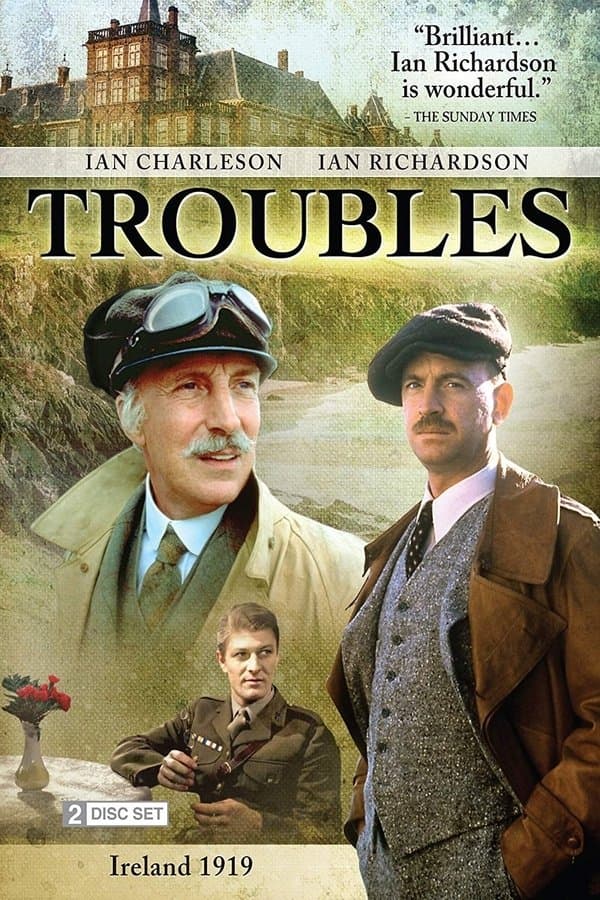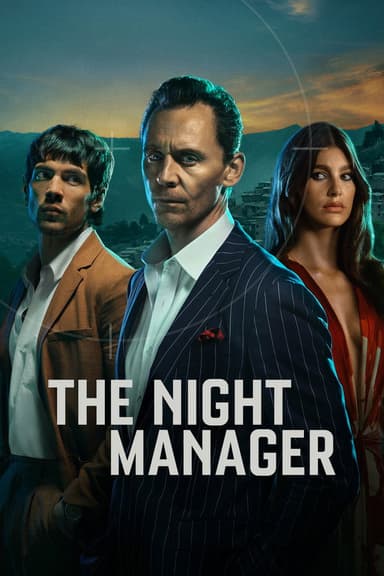
Troubles
1988 • Comedy, Drama
In 1919, Major Brendan Archer arrives in Ireland to reunite with his fiancée, Angela Spencer. Unfortunately, the family home, The Majestic Hotel, is a decaying shadow of its former self, as is Angela. Puzzled by the changes, Archer's attentions are soon drawn to her lively friend, Sarah Devlin, a passionate Irish Nationalist. They fall in love, but the Major soon discovers some disturbing aspects about their relationship, which threatens to explode into violence, destruction, and murder.
Why you should read the novel
Discover the full force of J. G. Farrell’s vision by reading Troubles, the novel that inspired the 1988 TV adaptation. On the page, Farrell’s dark wit, razor-sharp observation, and lyrical detail turn the crumbling Majestic Hotel into an unforgettable symbol of a fading Anglo-Irish world during the Irish War of Independence.
The book immerses you in the inner life of Major Brendan Archer and the eccentric community he encounters, revealing nuances the screen can only suggest. Farrell’s prose captures the absurdity, pathos, and slow-motion collapse of empire—through letters, overheard talk, and sardonic narration that make every scene richer and more layered.
If you enjoyed the atmosphere of the series, the Troubles novel offers deeper character psychology, broader historical context, and award-winning prose that critics celebrate as a modern classic of Irish literature. Read the source to experience the story as Farrell intended: immersive, unsettling, and impossible to forget.
Adaptation differences
Troubles (1988) translates the novel’s mood to the screen, but it can’t reproduce Farrell’s distinctive narrative voice—the dry, sardonic commentary that shades every event with irony. The book’s humor and elegiac bite often arise from the author’s language and perspective, which the series necessarily replaces with visuals and dialogue, shifting tone toward straightforward period drama.
To fit a limited runtime, the adaptation trims and combines characters, streamlines the hotel’s many residents, and pares back subplots. The Majestic’s eccentricity—its overwhelming cats, decaying corridors, and gallery of unforgettable guests—feels more concentrated on television, while the novel lingers on these textures to build satire and atmosphere.
The series condenses the political backdrop of the Irish War of Independence, simplifying timelines and compressing escalating tensions. In the book, shifting allegiances, social class anxieties, and everyday frictions accumulate slowly and ambiguously; on screen, events are more direct and event-driven, with less room for Farrell’s layered critique of empire and colonial decline.
Finally, the adaptation favors clearer dramatic beats and relationship focus, while the novel’s ending lands with bleaker irony and aftershocks that resonate beyond the final page. Readers will find a more unsettled, morally ambiguous conclusion in the book, along with context and consequences that the screen version can only gesture toward.
Troubles inspired from
Troubles
by J. G. Farrell










